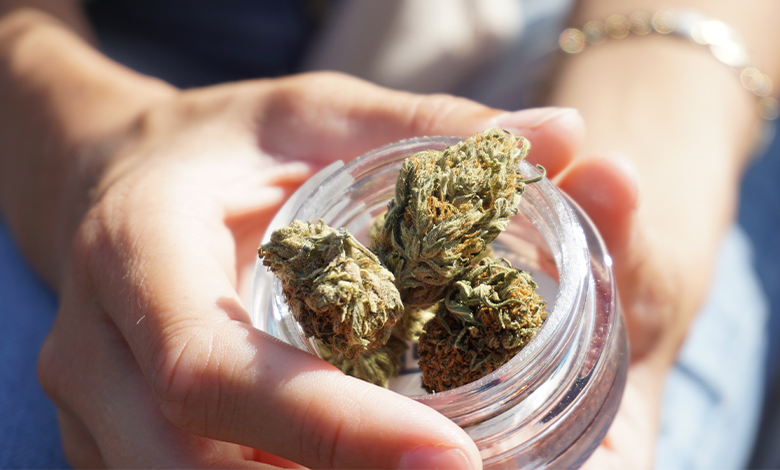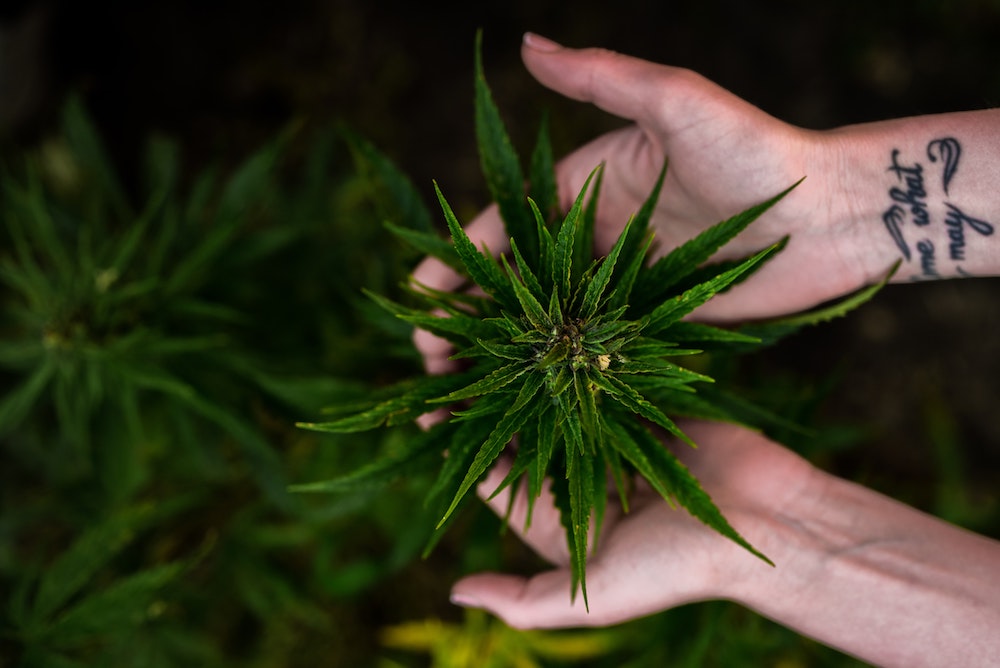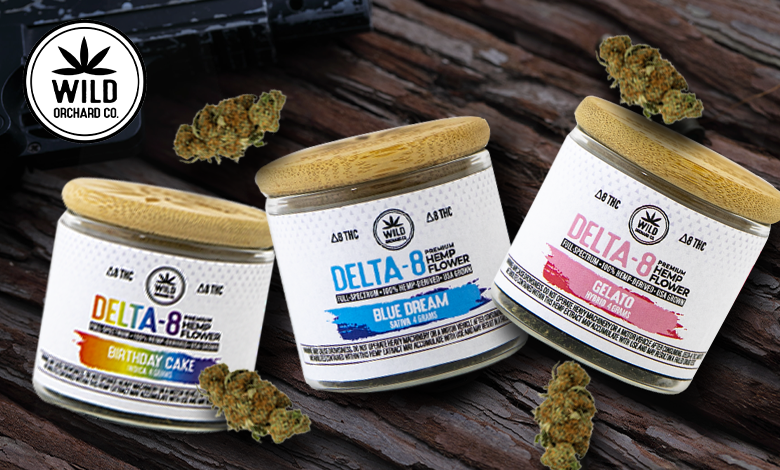News
What’s the Difference Between HHC and Delta-8 or Delta-9 THC?
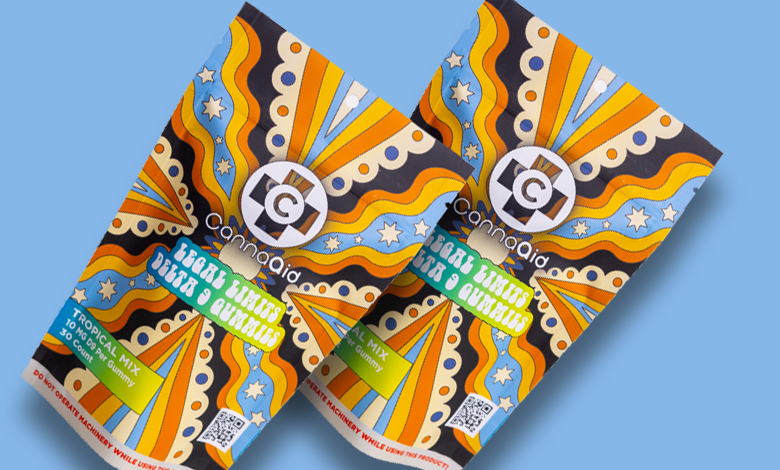
HHC is a legal and natural cannabinoid alternative to the illegal THC molecule. Cannabinoids such as delta 8 and delta 9 are similar to HHC. There is a lot of similarity between HHC and delta 8. D8 has slightly less potency than D9, but more potency than D9. Although it has similar relaxing properties to D8, it also has euphoric effects (especially at higher doses). HHC, unlike D9, is legal in most states and costs about the same as delta 8.
What is HHC?
Known for its shelf stability and THC-like effects, an analog is a hydrogenated form of THC. The shelf life of this product is substantially longer than delta 9 THC, so you can safely store it in your cabinets or refrigerator.
Cannabis plants naturally contain minuscule amounts of HHC, or hexanoic acid. Because HHC can be produced in a laboratory and sold in large quantities, companies produce it commercially.
There is no chemical difference between HHC and THC. As opposed to regular THC, HHC lacks double bonds in its chemical structure, which makes it more stable and inactive.
Delta 8 THC: What is it?
As delta 9 THC, delta 8 THC has the same structure, except for a double bond at the beginning of the carbon chain. The result is a compound that has a higher bioavailability when compared to delta 9 THC.
When looking for a less intoxicating, less anxiety-inducing alternative to delta 9, delta 8 is considered to be the best choice.
Delta 9 THC is one of the most common and well-studied cannabinoids in the cannabis plant, but there are other cannabinoids that can be just as beneficial. With a longer shelf life than HHC and many other medical benefits, delta 8 THC has a very high potential for treating chronic pain. It also helps to control vomiting and nausea, making it useful for those suffering from chemotherapy.
What is Delta 9 THC?
There are over 100 cannabinoids in cannabis, but only one is known to produce the “high.” That’s delta 9 THC.
The primary psychoactive compound in marijuana is delta 9 THC.The primary psychoactive compound in marijuana is delta 9 THC. According to the 2018 Farm Bill, it is present in hemp, but only in trace amounts.
Tetrahydrocannabinol, or delta 9-THC, is the chemical responsible for cannabis’ psychoactive effects. In addition to this, it also activates other receptors in the brain that regulate appetite, sleep, memory, and auditory and visual perception.
Delta 8 and HHC Mixed: What Are the Consequences?
In cannabis, top-rated delta 9 THC is also known as tetrahydrocannabinol (THC). An analogue of delta 9 THC, delta 8 THC has similar effects but is less potent and effective than delta 9 THC.
Delta 9 is a well known cannabis compound, with a long history of use. It has been recently rediscovered as a new energy booster and mood enhancer, as well as high levels of antiseptic compounds. Some companies have used delta 8 to create a mixture of both compounds at the same level in order to achieve balance, with the understanding that both compounds are safe when used together.
Safety & Side Effects of HHC vs. Delta 8 & Delta 9
Is HHC safe? Officially, there haven’t been any studies to talk about its safety profile. So, all we have is anecdotal evidence. Although HHC is not used as commonly as delta 8, many people continue using it on a daily basis- which means that it is safe for them.
Delta 9 is safe and has fewer side effects than delta 8. While they contain the same cannabinoids, delta 8 products aren’t entirely pure. Delta 8 products are notorious for causing anxiety and having an overdose risk. Delta 9 is made from natural hemp and doesn’t have any contaminants or fillers.
HHC is an abbreviation for harmful and toxic chemicals. Similar to delta 8, the risk of consuming HHC comes from the potential presence of harmful and toxic byproducts in the final item — a result of using harsh chemicals during the manufacturing process. Check CannaAid for more information about Delta 9 THC.
The following side effects have been reported by users of this cannabinoid:
- Mouth feeling dry
- The eyes are red
- Having anxiety
- The paranoia
- Anxiety and insomnia
- Hunger increases
- Feeling dizzy
- Confusion
HHC is a chemical found in most strains of cannabis, but it’s more concentrated in some. When the user reacts sensitively to HHC, they report having side effects similar to when consuming high doses of THC. Delta 9 tends to cause the most severe side effects out of the three, but if taken in high doses, the side effects of HHC and delta 8 are also more pronounced.
THC has side effects that are more pronounced with varying levels of CBD. In addition, products that don’t contain THC tend to cause less side effects such as paranoia and anxiety.
Whole spectrum products are likely to present more balanced effects that don’t lead to anxiety. Delta 8 is much milder than delta 9, but it can cause some of the common side effects like anxiety, extreme tiredness, and low blood pressure.
THC may cause the following side effects:
- The paranoia
- Having anxiety
- The heart beats rapidly
- Blood pressure rises
- Sleeplessness
News
What’s Involved in the Personal Injury Claim Process

If you have sustained injuries because of another person’s negligence can file a personal injury claim to seek damages. However, it can feel complicated if it is your first time going through the claim process. Because of this, you can make mistakes. Sadly, even a simple mistake in this type of case can decrease your odds of securing compensation for your injuries. To avoid these mistakes, you should seek legal advice from an experienced personal injury attorney.
It’s not a legal requirement to hire an attorney to file an injury claim. However, hiring an attorney is usually the first step. The right lawyer can help you throughout each step of the process, which includes ensuring you have the right to sue. Below are the steps involved in the personal injury claim process:
Screening
As the injured party who wants to initiate a lawsuit, you must contact a lawyer for a consultation first. This allows you to talk about your case and the injuries you have suffered. During this consultation, the attorney may ask you to sign a document that authorizes them to access your medical records. The lawyer will ask about your insurance coverage, whether an insurance adjuster has contacted you, and what transpired during your conversation with them.
Once the lawyer accepts the case, they will thoroughly investigate the accident. This includes speaking with witnesses, collecting and preserving evidence, and contacting insurance companies.
Settlement Negotiations
Before you file a lawsuit, your lawyer will contact the insurance company of the at-fault party to determine if they can reach a fair settlement of your case before you to go court. Based on the circumstances and facts of your case, your lawyer drafts a demand letter with a settlement amount and send this to the insurance company. If both parties cannot reach an agreement, litigation can ensue.
Complaint Filing and Serving
Your lawyer will file the complaint with the court, triggering the litigation process. Then, the defendant will get a summons that notify them of your complaint and the amount of time they have to respond to it.
Discovery
During the discovery process, lawyers for both sides gather details and testimony, documents, and evidence related to the case. Discovery comes in the form of written discovery, depositions, and production of documents.
The discovery process is then followed by hiring expert witnesses, filing pre-trial motions, and going through mediation. These steps are meant to try to help both parties settle their case before going to trial. However, if they fail to resolve their issues during these steps trial will occur in court.
News
Hh gregg A Tale of Retail Resilience and Transformation

In the world of retail, few names are as iconic as hh gregg. This article delves into the fascinating journey of this retail giant, from its inception to its rebranding as Gregg’s, and the impact it left on the retail market.
| Heading | Subheading |
|---|---|
| Introduction | |
| The Rise and Fall | |
| Rebranding as Gregg’s | |
| Products and Services | |
| Customer Experience | |
| Online Presence | |
| Impact on Retail Market | |
| Conclusion |
Introduction
Once a household name in the electronics and appliances retail industry, hh gregg was known for its wide range of products and exceptional customer service. However, its story is not just one of success but also resilience and transformation.
The Rise and Fall
hh gregg’s rise to prominence was meteoric. Established in 1955 by Henry Harold Gregg and his wife, Fansy, as an appliance and electronics store in Indianapolis, Indiana, the company quickly expanded its footprint across the United States. With its commitment to delivering quality products and personalized service, hh gregg became a go-to destination for consumers seeking appliances, electronics, and more.
The fall of hh gregg, on the other hand, was equally dramatic. In 2017, the company filed for bankruptcy and subsequently closed all its stores. The reasons behind this decline were complex, including increased competition and changing consumer preferences.
Rebranding as Gregg’s
Despite the setback, the hh gregg story didn’t end there. The company underwent a remarkable transformation and rebranded itself as Gregg’s. This rebranding effort aimed to leverage the brand’s legacy while adapting to the changing retail landscape.
Products and Services
Gregg’s continued to offer a wide array of products, including appliances, electronics, and furniture. However, it also diversified into new categories such as smart home technology, emphasizing innovation and staying up-to-date with consumer demands.
Customer Experience
One thing that remained unchanged was Gregg’s commitment to customer experience. The brand focused on delivering exceptional service, ensuring that customers felt valued and supported in their purchasing decisions.
Online Presence
In the digital age, Gregg’s recognized the importance of an online presence. They invested in user-friendly websites and mobile apps, making it convenient for customers to browse, purchase, and track their orders from the comfort of their homes.
Impact on Retail Market
Gregg’s reentry into the retail scene had a significant impact. The company’s success story served as a beacon of hope for the retail industry, showcasing that reinvention and adaptation could breathe new life into even the most established brands.
Conclusion
In conclusion, the transformation of hh gregg into Gregg’s is a testament to the resilience and adaptability of retail brands. It demonstrates the importance of understanding customer needs and embracing change to thrive in an ever-evolving market.
FAQs
1. What led to hh gregg’s decline and bankruptcy?
The decline of hh gregg was influenced by factors like increased competition, changing consumer preferences, and financial challenges.
2. How did Gregg’s rebrand itself successfully?
Gregg’s successfully rebranded by diversifying its product offerings, focusing on customer experience, and establishing a robust online presence.
3. What products can I find at Gregg’s today?
Gregg’s offers a wide range of products, including appliances, electronics, furniture, and smart home technology.
4. How can I access Gregg’s online services?
You can easily access Gregg’s products and services through their user-friendly website and mobile app.
5. What can other retailers learn from Gregg’s transformation?
Other retailers can learn that adaptability and a customer-centric approach are key to surviving and thriving in the dynamic retail market.
News
Sonic Youth: The Revolutionary Band That Redefined Alternative Music
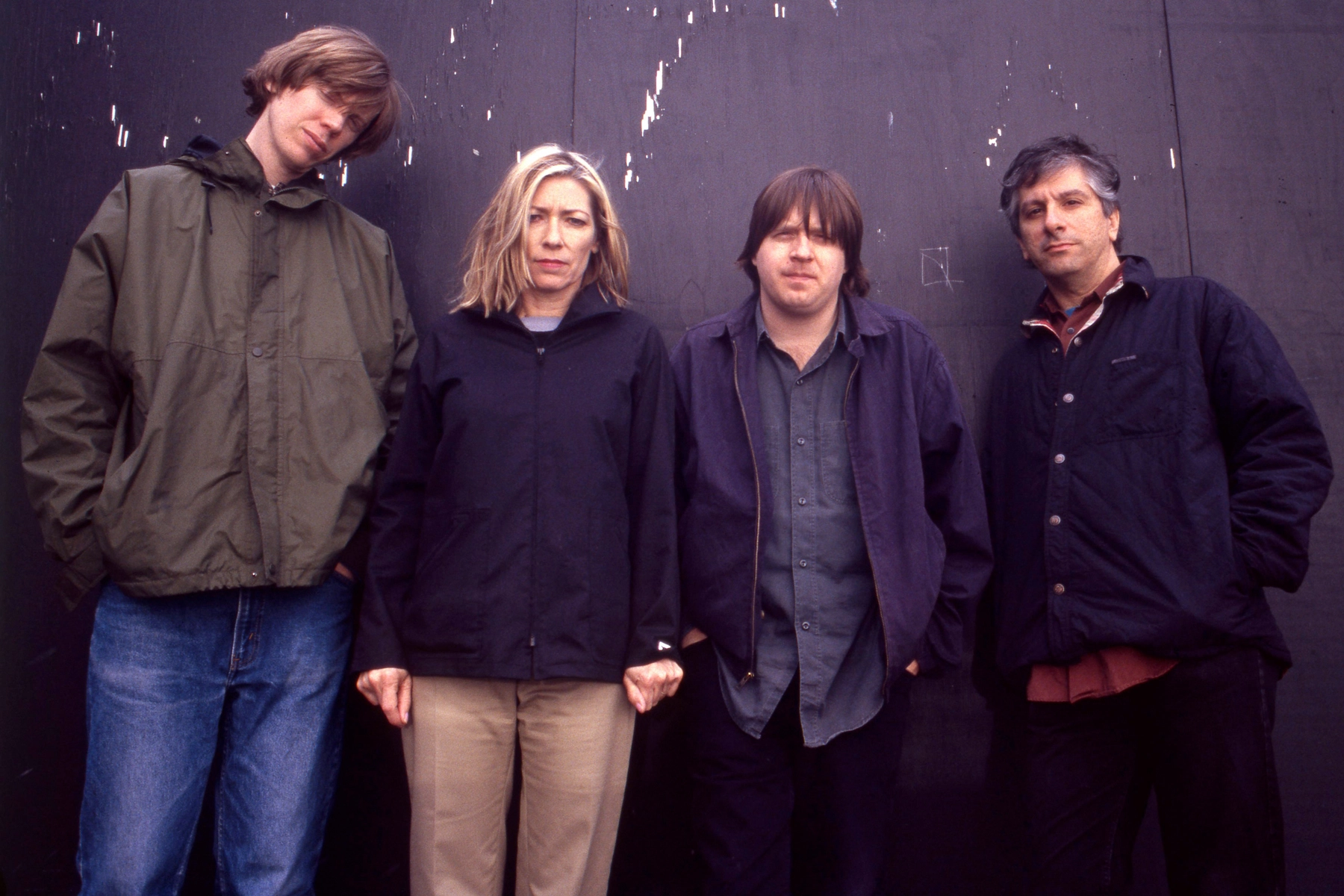
Sonic Youth was a groundbreaking band that emerged in the early 1980s and quickly became a significant influence on the alternative music scene. Combining elements of punk rock, noise, and experimental music, the band created a distinctive sound that challenged conventional ideas about music and paved the way for countless other artists to explore new sonic possibilities.
In this article, we will explore the history of Sonic Youth, their impact on the music world, and their enduring legacy. From their early days in New York City’s vibrant downtown scene to their final performance in 2011, we will examine the band’s journey and celebrate their contributions to alternative music.
Introduction to Sonic Youth
Sonic Youth formed in 1981 in New York City’s Greenwich Village, where they quickly established themselves as a force to be reckoned with in the underground music scene. The band consisted of Thurston Moore, Lee Ranaldo, Kim Gordon, and Steve Shelley, and their sound was characterized by dissonant guitars, unconventional song structures, and a willingness to experiment with noise and feedback.
Early Years and Rise to Fame
Sonic Youth’s early years were marked by a series of independent releases and collaborations with other artists. However, it was their 1988 album “Daydream Nation” that propelled them to international fame and critical acclaim. The album was hailed as a masterpiece and remains one of the most influential alternative albums of all time.
Sonic Youth’s Unique Sound
Sonic Youth’s sound was defined by their use of alternate guitar tunings, unorthodox playing techniques, and a willingness to experiment with noise and feedback. This approach was heavily influenced by avant-garde composers like John Cage and minimalists like La Monte Young. The band’s willingness to push the boundaries of what was considered acceptable in popular music helped to redefine the alternative music scene and paved the way for countless other artists to experiment with sound.
Sonic Youth’s Impact on Alternative Music
Sonic Youth’s impact on alternative music cannot be overstated. The band’s willingness to experiment with sound and push the boundaries of what was considered acceptable in popular music paved the way for countless other artists to explore new sonic possibilities. Bands like Nirvana, Pixies, and Sonic Youth’s own record label, SST Records, were all heavily influenced by the band’s unique sound and approach to music.
Sonic Youth’s Legacy
Sonic Youth’s legacy continues to live on in the music of countless other artists. The band’s willingness to experiment with sound and push the boundaries of what was considered acceptable in popular music helped to redefine the alternative music scene and paved the way for countless other artists to explore new sonic possibilities. Sonic Youth’s influence can be heard in the music of bands like My Bloody Valentine, Radiohead, and Arcade Fire, to name just a few.
Conclusion
Sonic Youth was a band that redefined what was possible in alternative music. Their unique sound, willingness to experiment with noise and feedback, and refusal to be bound by conventional song structures helped to pave the way for countless other artists to explore new sonic possibilities. Sonic Youth’s legacy continues to live on in the music of countless other artists, and their influence on alternative music will be felt for generations to come.
FAQs
- When did Sonic Youth form?
- Sonic Youth formed in 1981 in New York City’s Greenwich Village.
- Who were the members of Sonic Youth?
- The band consisted of Thurston Moore, Lee Ranaldo, Kim Gordon, and Steve Shelley.
- What was Sonic Youth’s unique sound?
- Sonic Youth’s sound was characterized by dissonant guitars, unconventional song structures, and a willingness to experiment with noise and feedback.
- What was Sonic Youth’s most influential album?
-

 Entertainment1 year ago
Entertainment1 year agoAdmiral casino biz login
-

 Entertainment2 years ago
Entertainment2 years agoHow Much Does The Rock Weigh
-

 Entertainment2 years ago
Entertainment2 years agoDownload Popular Latest Mp3 Ringtones for android and IOS mobiles
-

 Entertainment2 years ago
Entertainment2 years agoTop 10 Apps Like MediaBox HD for Android and iPhone
-

 LIFESTYLE2 years ago
LIFESTYLE2 years agoWhose Heartland?: The politics of place in a rural–urban interface
-

 Fashion3 years ago
Fashion3 years agoHow fashion rules the world
-

 Fashion Youth2 years ago
Fashion Youth2 years agoHow To Choose the Perfect Necklace for Her
-

 Fashion Today2 years ago
Fashion Today2 years agoDifferent Types Of lady purse

